
50 Photos Showing Times People Used The Wrong Words, Leading To A Whole Load Of The Funniest Mishaps
"My parents just gave me 3L of milk which inspires in 3 days"

An official term for the abuse of a word that sounds similar to the right one is called "malapropism." It's remarkably prevalent, especially when compared to the vast English vocabulary, and it frequently appears in the everyday speech.
However, because a malapropism has a hilarious effect, writers will occasionally utilize it as a literary device. The Rivals, a drama by Richard Brinsley Sheridan, is where the phrase first appeared.
In order to make the audience laugh, the character Mrs. Malaprop does precisely that in the story. Mal à propos, which translates to "wrongly or poorly placed," is likely where Mrs. Malaprop got her name.
The borrowed word is spelled "malapropos" in English and means "inappropriate or inappropriately." It all began with a ridiculous image as a screenshot of Facebook user Dunta Pickett's viral post from August 1, 2016, in which he shared a picture of his birthday dinner and instead of writing "bon appétit," wished himself "bone apple tea."
After just one month, a subreddit with the same name was created with the aim of compiling instances of people struggling to express themselves. The phrase quickly became a household phrase on the internet.
In the end, the "Bone Apple Tea" community grew to 1.2 million members, and based on the volume of new content it produces, that number will keep on rising.
1. Chicken Case Of Ideas
 EERJJ
EERJJ
2. Horrors Cope
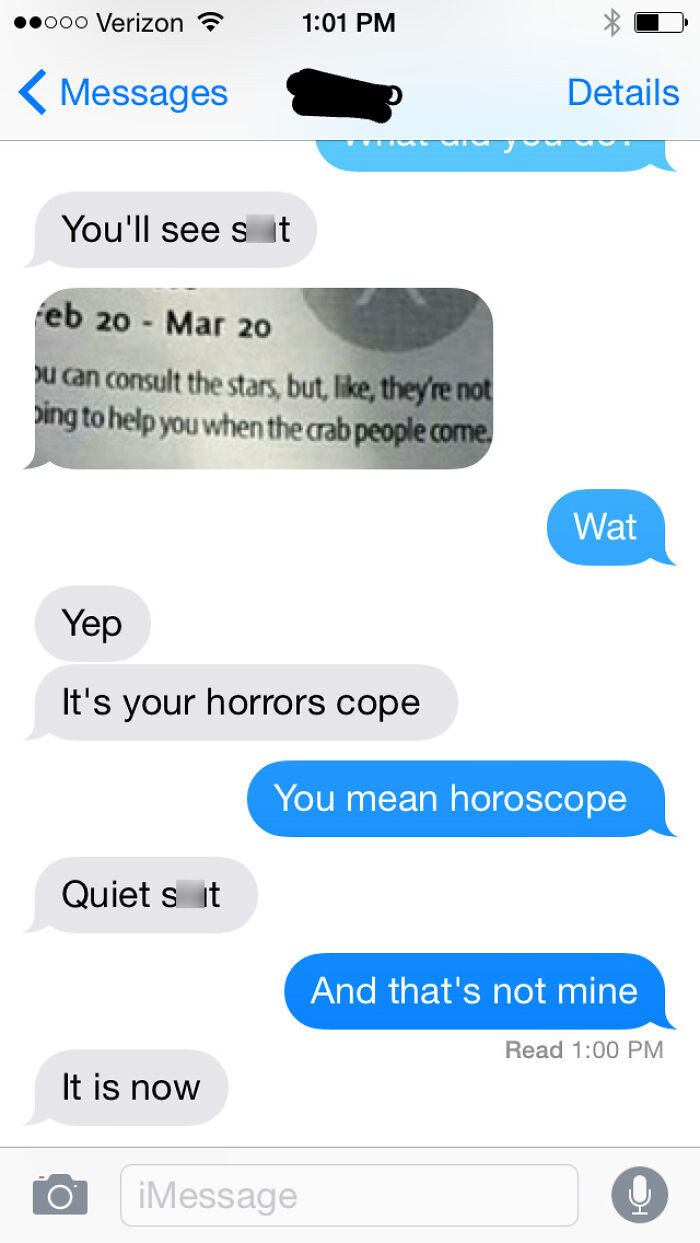 admiralomelette
admiralomelette
3. Alpaca Lips
 PinkyLizardBrains
PinkyLizardBrains4. Caucasian
 LTAD2108
LTAD2108
5. Build Board
 tdzines
tdzines6. Skin
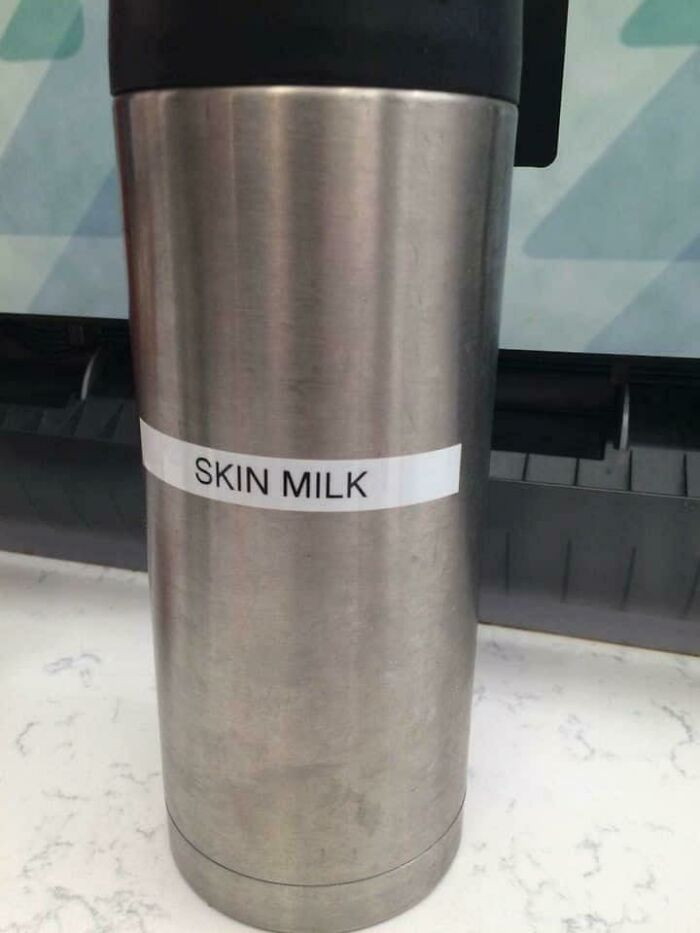 APFernweh
APFernweh
7. Mosquito Skeleton Society
 madamplease
madamplease
8. Very Nice Mid Evil Chair
 cowsofoblivion
cowsofoblivion
9. Commitments
 PigeonInAUFO
PigeonInAUFO10. Someone Needs To Tell Friday We Need Gas
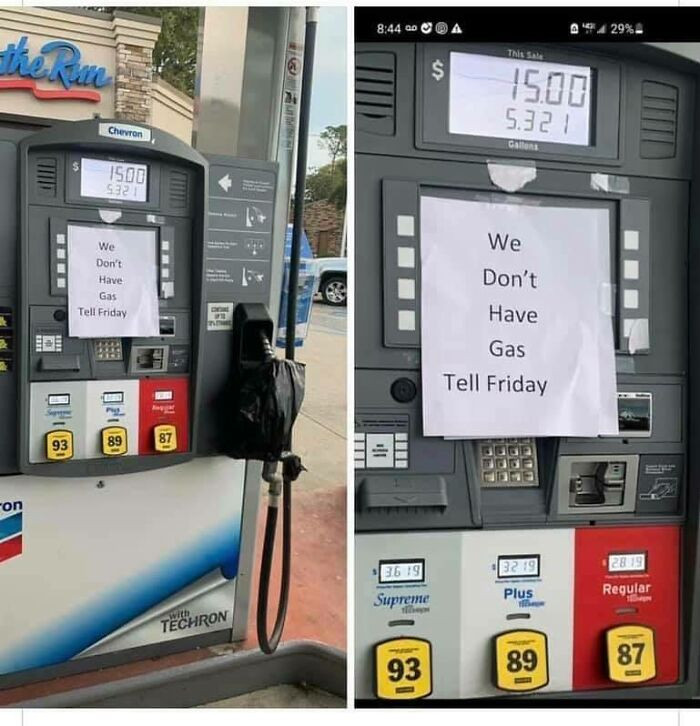 GonzoVeritas
GonzoVeritas
11. Larva Lamp
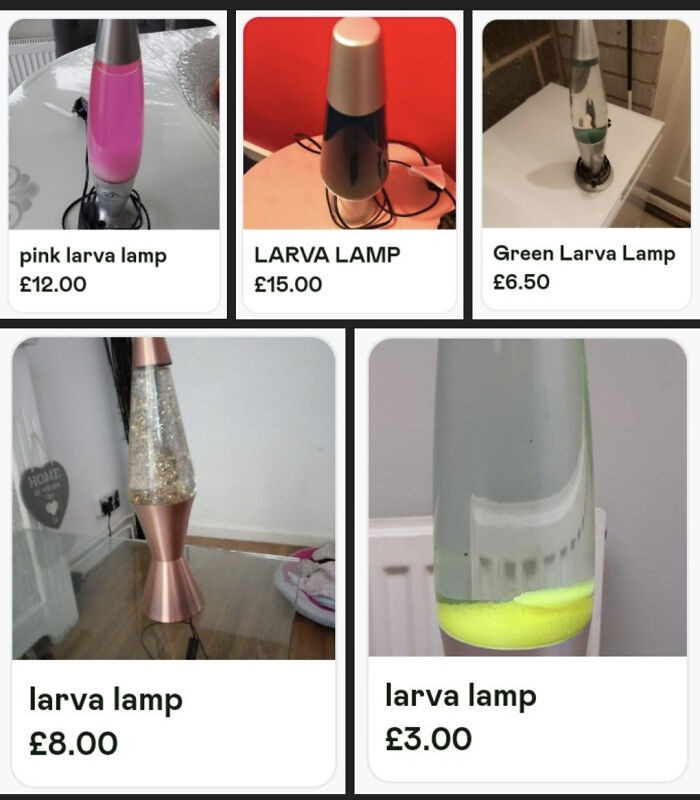 stormfet
stormfet12. He Do Be Coffin Skate-Ing Tho
 ReintegrationTablet
ReintegrationTablet
13. Lemonade These Papers
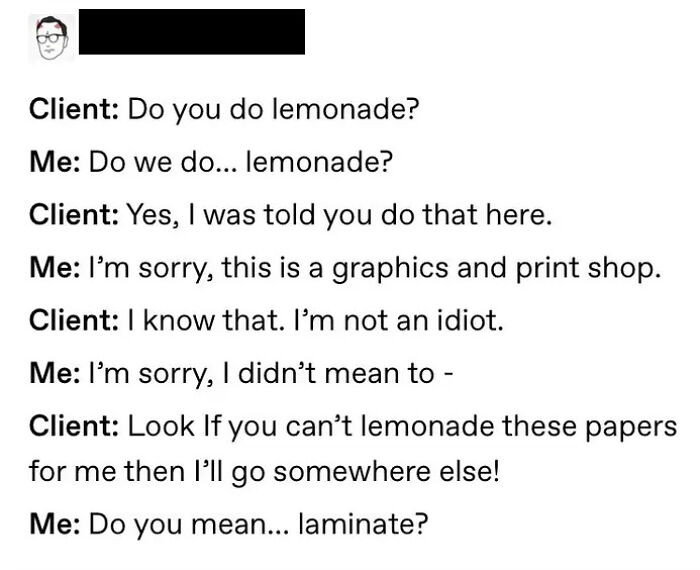 ExpertAccident
ExpertAccident14. ‘Currently I’m Into Essential Oil Diffusers And Incest’
 reddit.com
reddit.com
15. Uncle?
 gamba_dues
gamba_dues
16. Calling Flower Taste Like Ribs
 WeakHamburger
WeakHamburger
17. Not For Grandad
 amouretto
amouretto
18. Walked Right Pasta Me In Her Linguine!
 NeitherOstrichNorEmu
NeitherOstrichNorEmu
19. Alvin And The Chick Mucks
 Common_Coyote_3
Common_Coyote_3
20. Accept The Feet
 ickydonkeytoothbrush
ickydonkeytoothbrush
21. Closed For Personal Circumcisions
 Theoneandonlyk
Theoneandonlyk
22. Sorry For The Incontinence
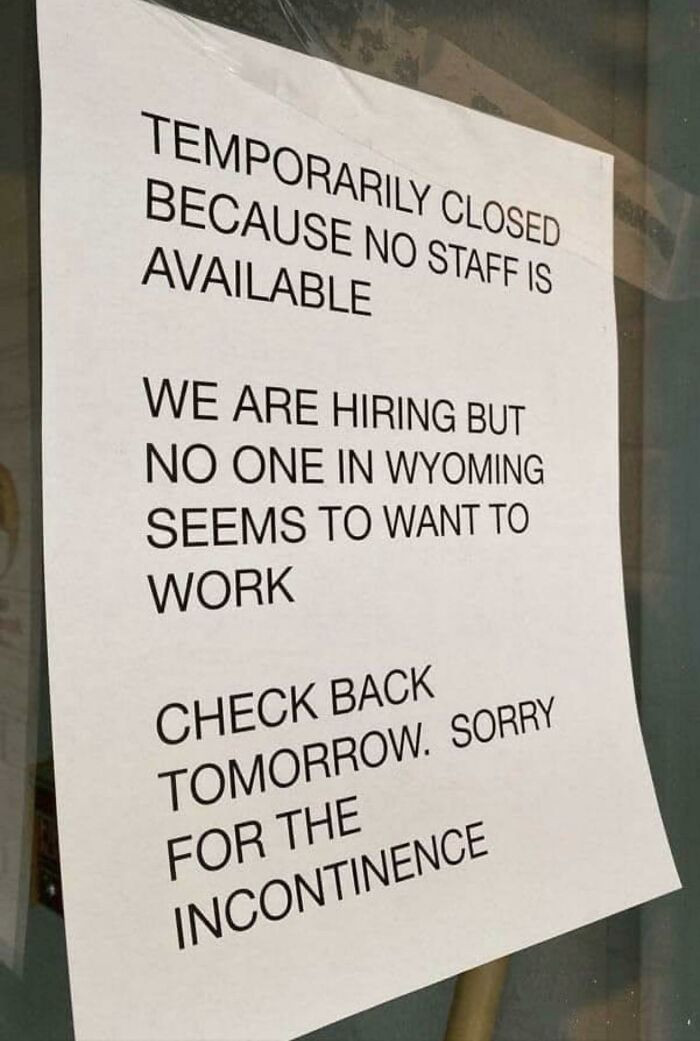 maskirovkaaa
maskirovkaaa
23. Violent
 queenofdastupids
queenofdastupids
24. May Body, May Rules
 DinklBot
DinklBot
25. Super Observant… On Wet Surfaces
 ginger-loving-asian
ginger-loving-asian
26. Job Requirements: Be A Ghost Rider
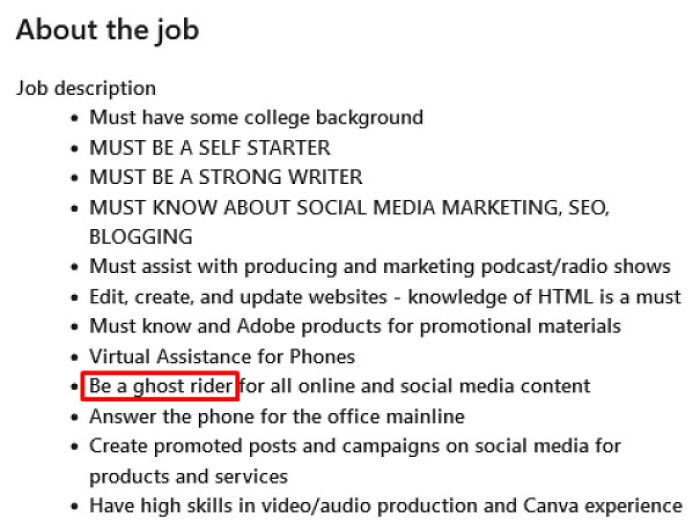 JonPaula
JonPaula
27. Shelf And Steam
 DravenPrime
DravenPrime
28. Milk Which Inspires
 danzha
danzha
29. Call The Corner
 scorchedgoat
scorchedgoat
30. Sally Manilla
 jonytano
jonytano
31. I Mean, I Assume Haiti Is Hot Too
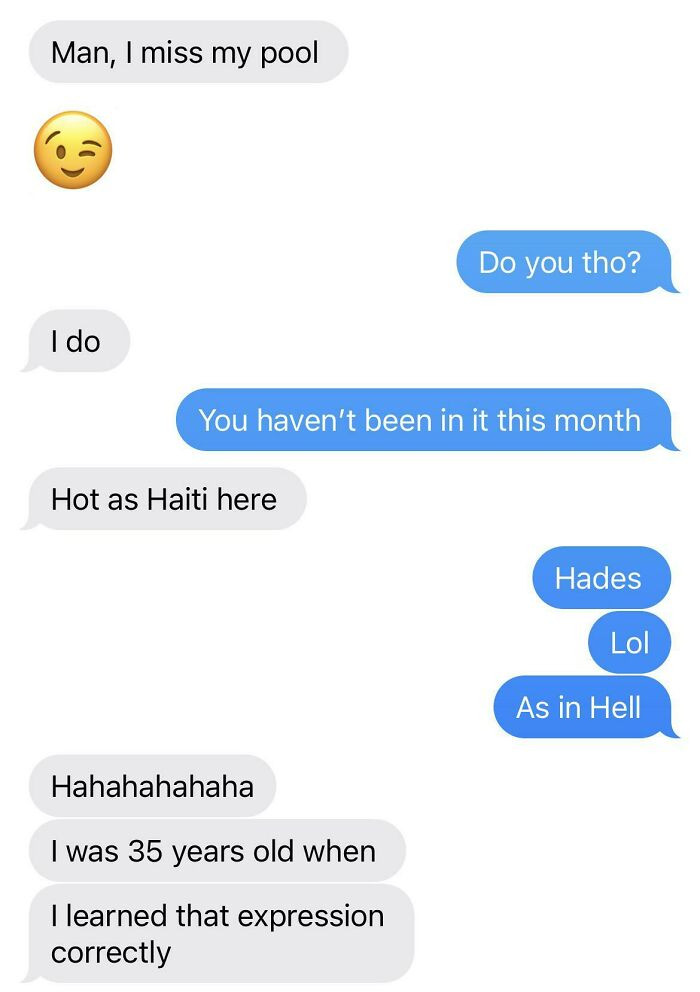 smeatloaf
smeatloaf
32. Al Gore Rhythm
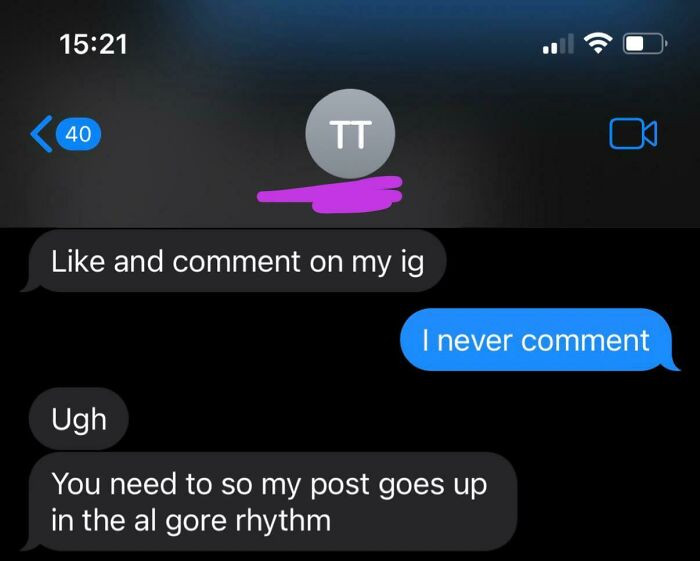 CantEverSpell
CantEverSpell
33. Monogamy Dresser
 zargkb
zargkb
34. All Tomato
 PlotsOfAFrog
PlotsOfAFrog
35. Organic Butterfly
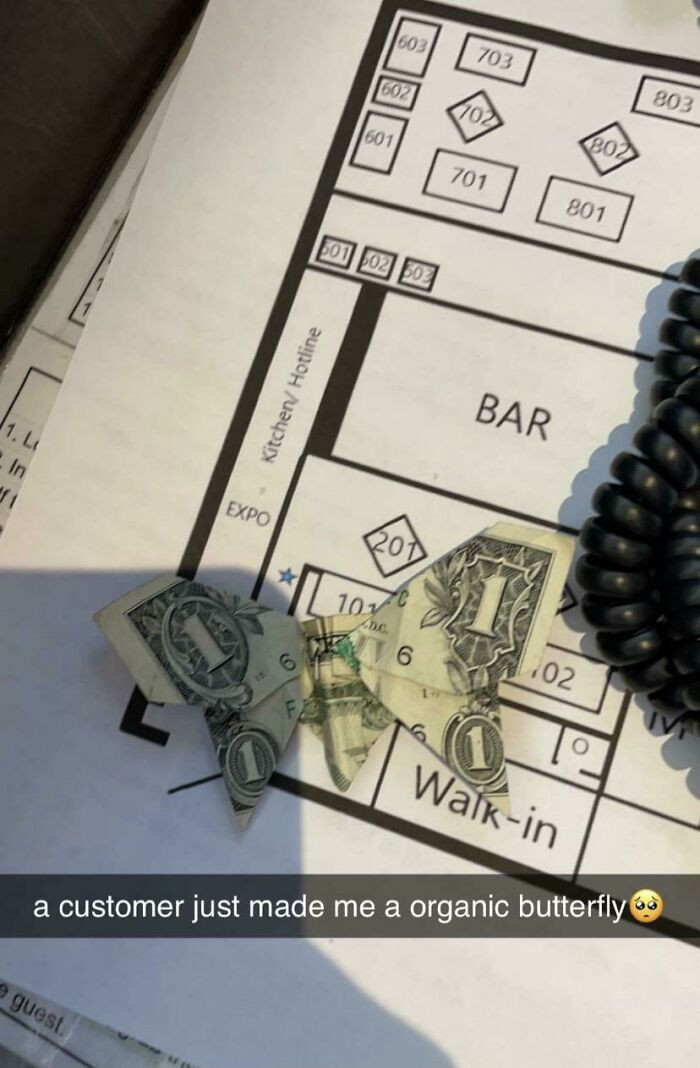 BlueJay_420
BlueJay_420
36. A B*tch You Worried
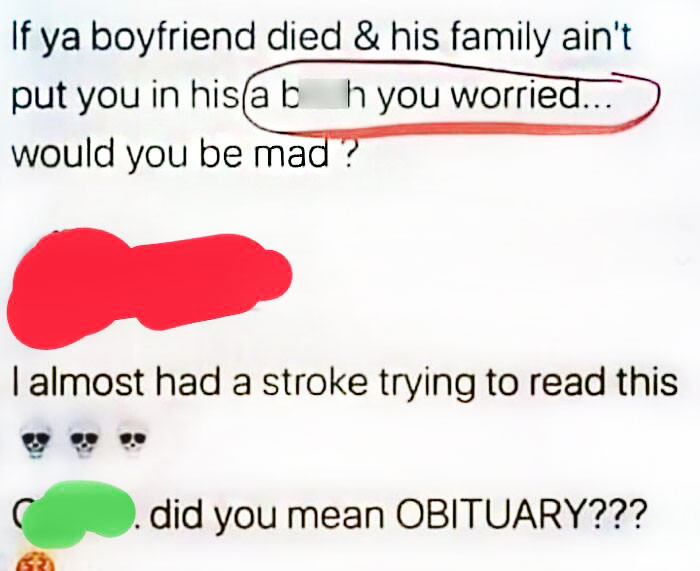 nomaddd79
nomaddd79
37. If You Incest
 teeny_gecko
teeny_gecko
38. Head Lice For Sale
 lordcupkake
lordcupkake
39. Takin A Bath
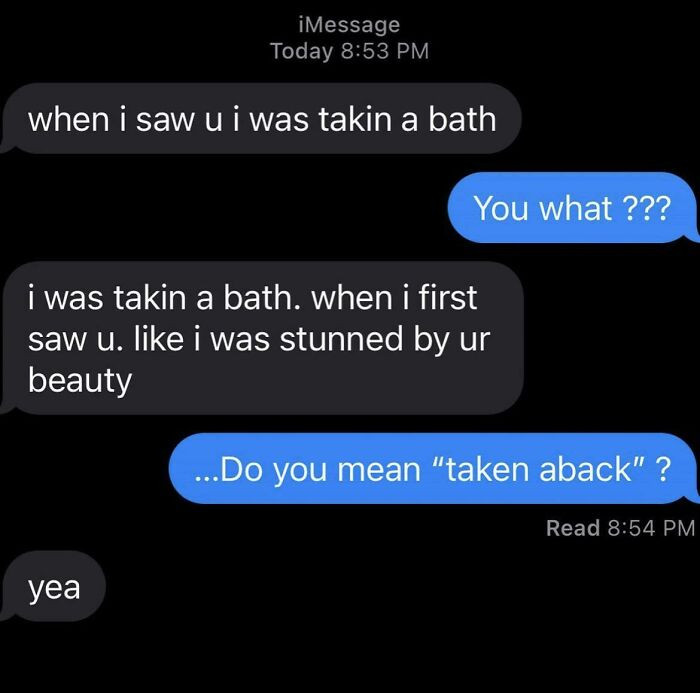 Mditty129
Mditty129
40. Beware The Green Reaper!
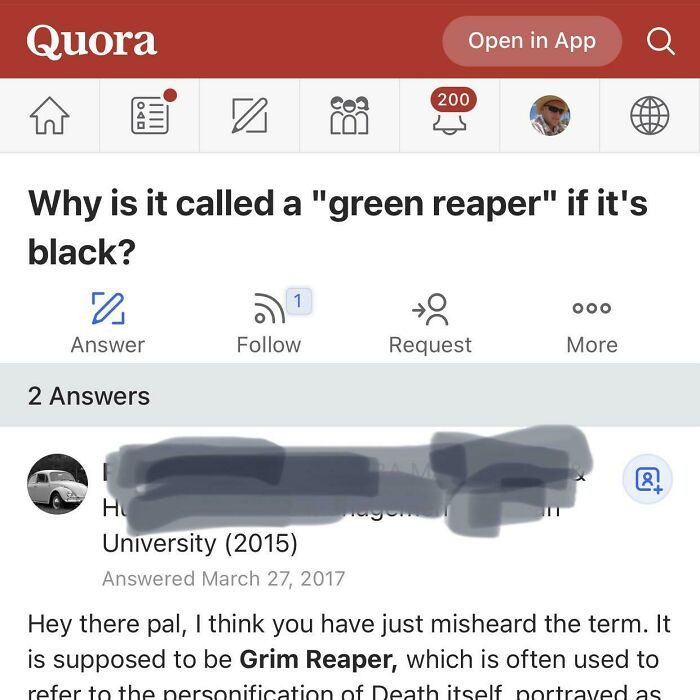 FlixFlix
FlixFlix
41. Laughing Historically
 OreMysticCoolcumber
OreMysticCoolcumber
42. “A Soon”
 Hearthacnut
Hearthacnut
43. The Aarons
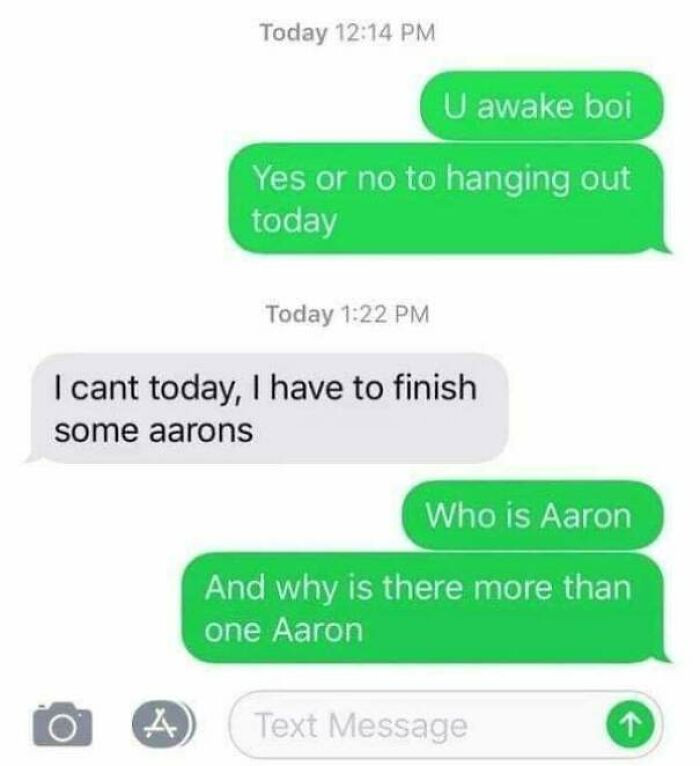 TheSpazzerMan
TheSpazzerMan
44. My Man Said First A Fall
 CytomPlayz
CytomPlayz
45. Arthur Writes This
 ilikebees30
ilikebees30
46. “She’s Cake” - I Was Toll Define Members Of This Sub Would Enjoy This
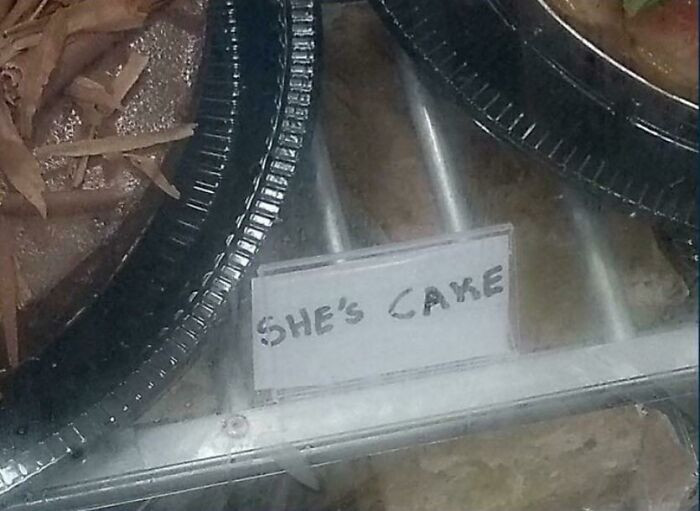 SHRIMPLYtv
SHRIMPLYtv
47. Pain Apple
 pulsating-orc-cock
pulsating-orc-cock
48. Gin Knee Pig
 Connorsweeney123
Connorsweeney123
49. Criminalized Onion
 MonkyThrowPoop
MonkyThrowPoop
50. Portal Potties
 Stalders1
Stalders1
Mispronunciations or "slips of the tongue" can also signal language shifts, which are not just embarrassing mistakes. In fact, sometimes we speak with mispronunciations because they are so common.
Which of these wrong words made you laugh out loud? Drop your comments below and share this post as well.
Maryjane







